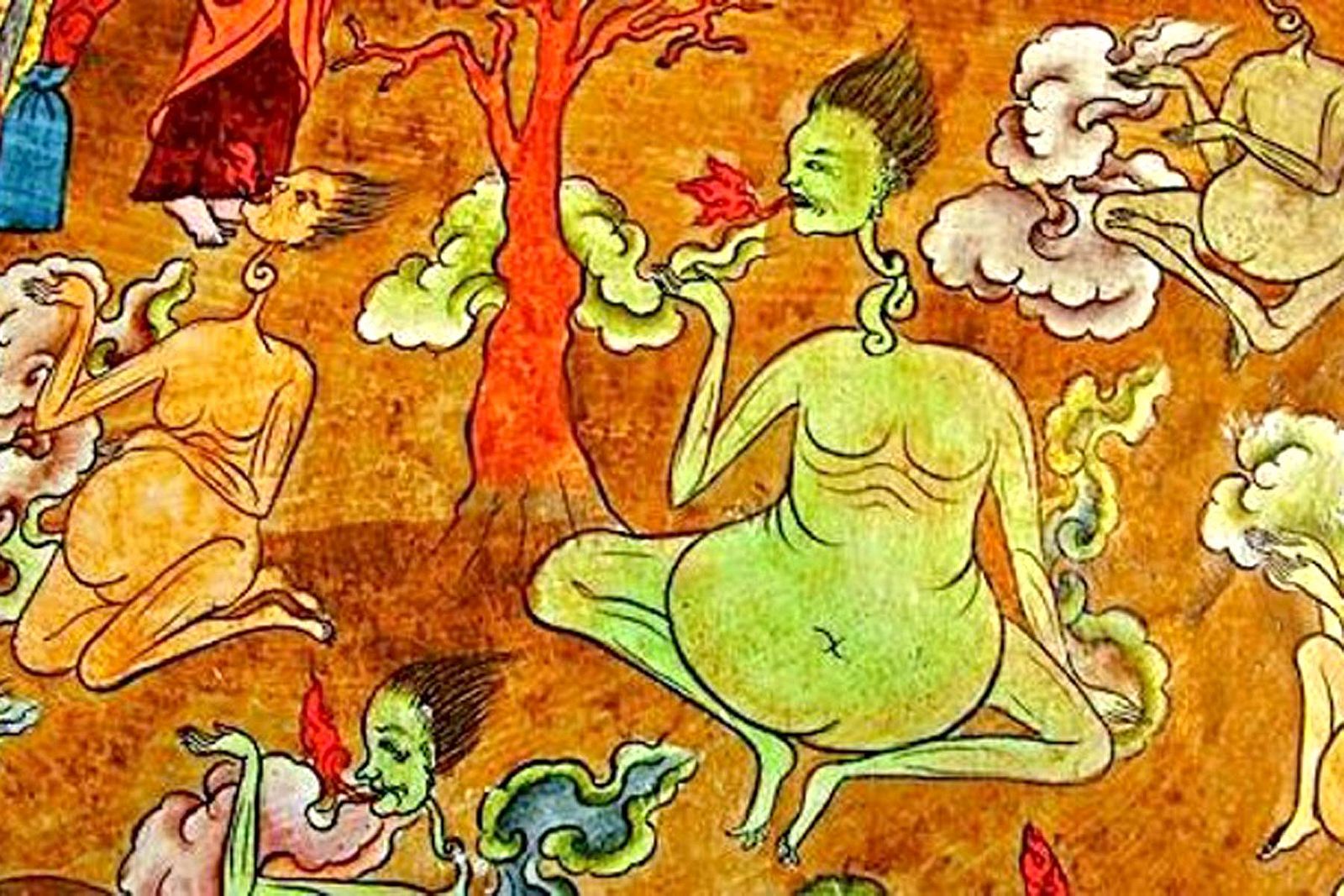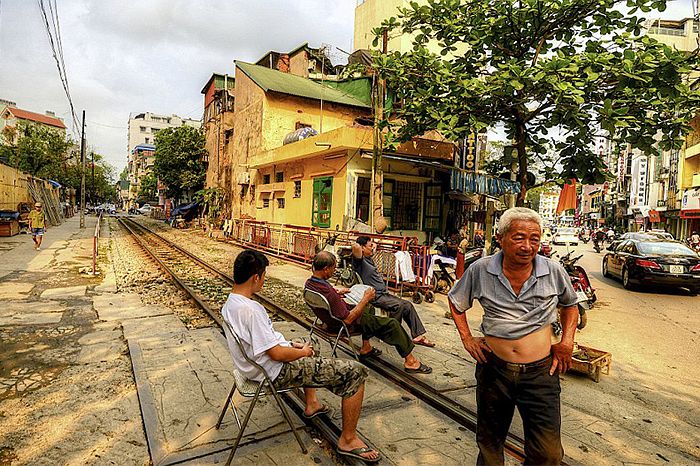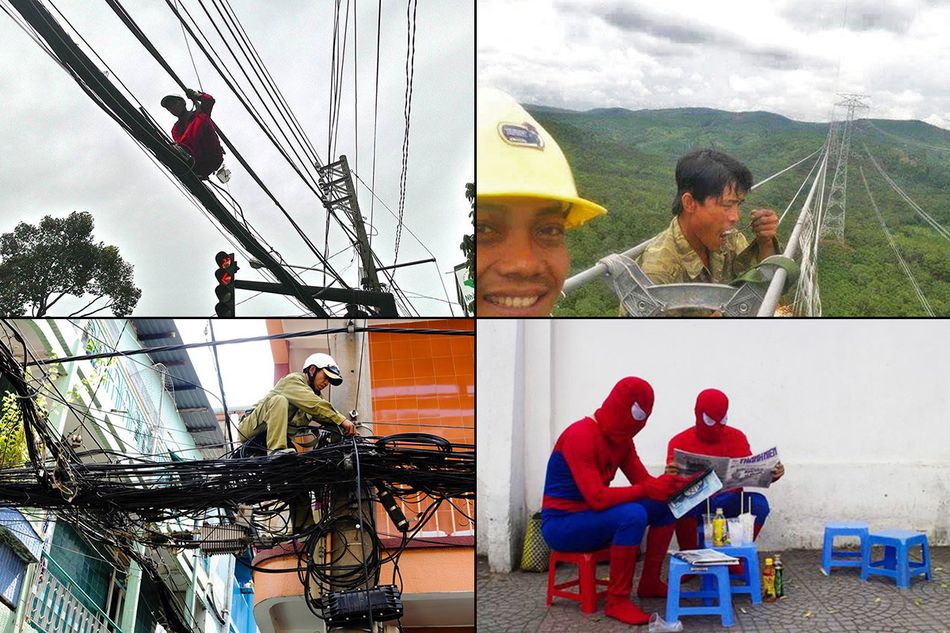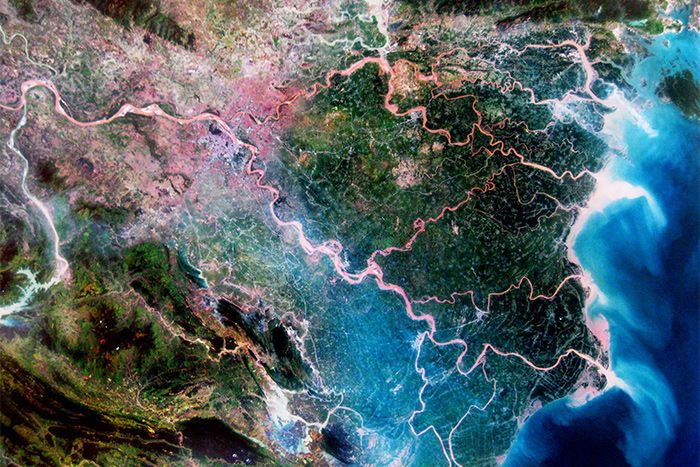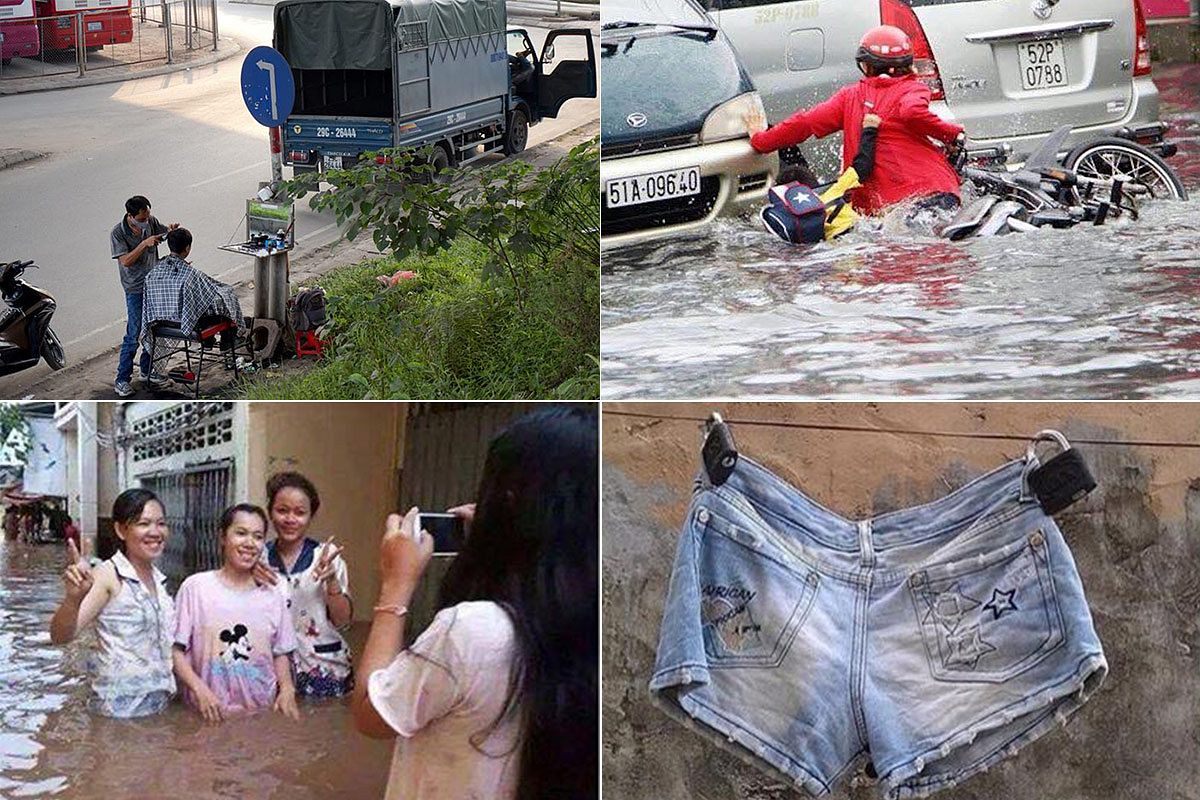The 7th lunar month, which usually falls in mid-August, is celebrated by Buddhists all over the world as the Month of Ghosts. Known as Vu Lan month in Vietnam, it is marked by large religious celebrations and numerous traditions.
The most common origin myth surrounding the month is the tale of a Buddha named Mục Kiền Liên who attempted to gain salvation for his mother from the deepest hell where she had to be repenting. And based on this tale, the annual lunar 7th month is called Vu Lan which is the Vietnamese translation of the Sanskrit word, Ullambana meaning “salvation".
Combining Buddhism and superstitious doctrines, it is said that this month, hell’s gates open to release ghosts, resulting in a practice called cúng cô hồn (worship of the damned ghosts) for those freed spirits which are believed to be unlucky.
Cúng cô hồn typically consists of making offerings to spirits and worshiping at pagoda. Families offer the ghosts plates of roasted pork, snacks and fruits, accompanied by burning incense and votive paper money and clothes.

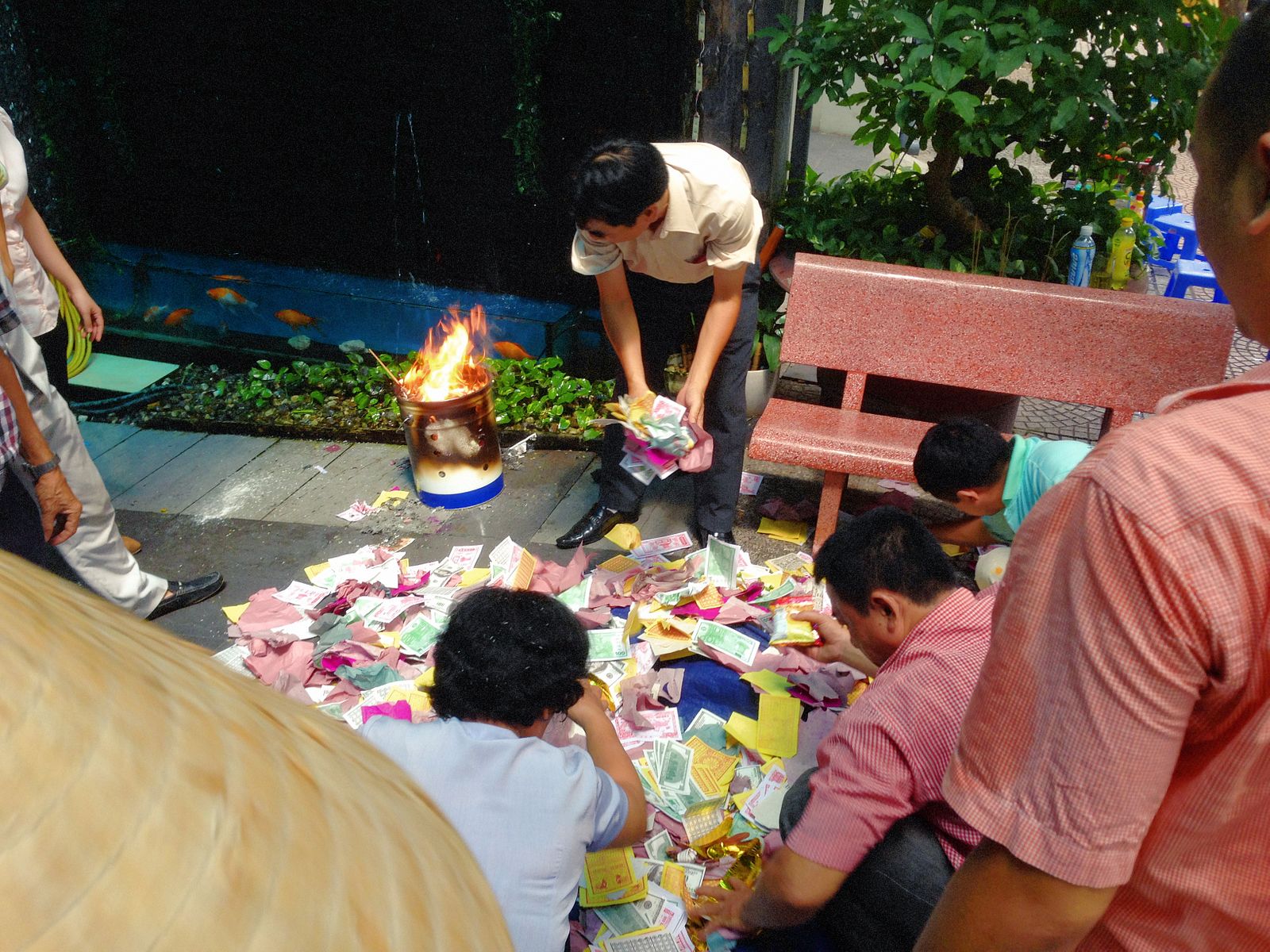
In Vietnam, on the 14th and 15th of the month, people go to pagoda to wish goodness for their deceased ancestors. Worshippers wear a red or white rose on their collar, indicating whose mother still lives and whose have unfortunately passed on.
While the month of ghosts usually starts in the 7th lunar month, residents of the former Huế Citadel observe the festival earlier. Huế’s month of ghosts focuses on paying tribute to the soldiers who died at Mang Cá Fort in a battle between forces led by Tôn Thất Thuyết and Trần Xuân Soạn and the French military. Boasting superior weapons, over a thousand Vietnamese soldiers perished at the hands of the French soldiers.

The Month of Ghosts is celebrated not only in Vietnam, but in other Buddhist countries as well.
In Taiwan, they hold a Ghost Festival with a parade of offerings and votive paper items for the dead. In addition, floating lanterns are launched into rivers and ponds to guide the ghosts and wish them good-fated reincarnation.
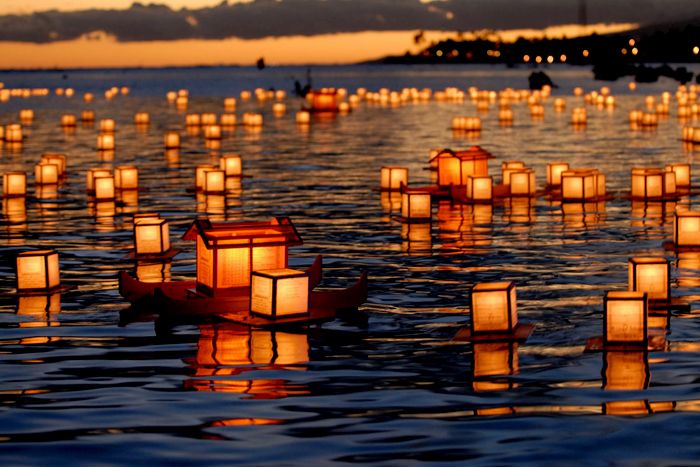
In Hong Kong, ceremonial burning of votive paper money, clothes and houses take place in public parks and on streets, with people even setting up outdoor cinemas for the dead.

Comparable ceremonies take place in Buddhist communities in Singapore, Malaysia.

Japanese Buddhists have a similar celebration for ancestors worship. Know as Obon, family members gather and visit their family’s tomb. Japanese usually make specific food and perform special dances on this occasion. In addition, fires are set on 5 mountains in Kyoto as guiding lights for their spirits.

August might seem just another month of summer in the West, but in the East, it carries a special significance for Buddhists.

